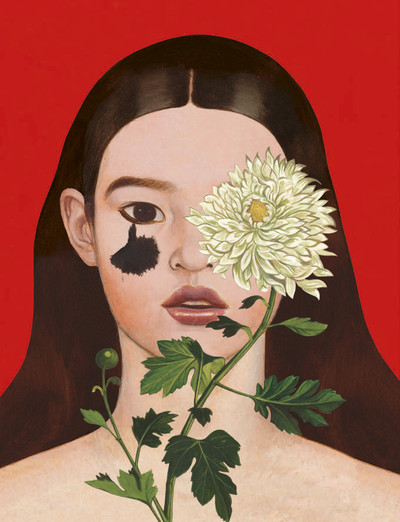A personal take on #StopAsianHate’s past, present and future.
By Patrick Li
Illustration by Pierre Mornet
A personal take on #StopAsianHate’s past, present and future.

‘Don’t cause any trouble’ was something that I was told for much of my childhood. ‘Study hard. Don’t call attention to yourself. Keep your voice down.’ I knew early on that these clichés were particular to Chinese kids like me. Yet I wasn’t in China where my parents had originated; I was in San Jose, California, where my non-Asian classmates were taught that each of them was special, that they should speak up, that they should stand out. And many of them were rewarded accordingly, or at least weren’t penalized for the very things that I was taught not to be.
Fast forward years later to the global pandemic that has brought the world to a standstill. Many of us have suddenly had time and space to reflect on the radical upheaval of our culture. Seismic shifts have exposed a multitude of racial and social inequities that were already at boiling point, while Black Lives Matter demonstrations following George Floyd’s killing in May 2020 rocked the US and accelerated long overdue calls for racial justice in many countries.
Since Covid-19 first emerged, now former president Trump’s incendiary rhetoric that it was a Chinese virus normalized and implicitly encouraged anti-Asian racism. A growing number of incidents of subtle bigotry and explicitly vicious attacks have become distressingly common. On 28 January 2021, a fatal assault on an 84-year-old Thai immigrant, Vicha Ratanapakdee, in San Francisco was captured on video and shared hundreds of thousands of times. Where once this horrific attack might have been seen but soon forgotten, this time it became a tipping point in the recognition of hate crimes targeting Asians.
In its wake, many of my Asian brothers and sisters in the culture and fashion communities, particularly designer Phillip Lim, realized they had to respond to this urgency. They defied those cultural directives ‘not to speak up’ and ‘not to stand out’ and did the opposite. Phillip partnered with several other involved Asians to give voice to #STOPASIANHATE, and I designed a hashtag logo for non-profit group All of Us Movement. Through a partnership with GoFundMe, we raised over $1 million in just one day to benefit grassroots Asian-American and Pacific-Islander advocacy groups.
In mid-March, another senseless and racist attack claimed eight victims in Atlanta, six of whom were of Asian descent. The nation was incensed – again – but somehow this felt different for many Asians. First, there was already a name and language to define our moral outrage. Secondly, many of us realized that others were also recognizing the injustices that they previously might simply have been endured at best, ignored at worst. We also saw white privilege again raise its head when the Atlanta police officer said the killer had been having ‘a bad day’, but this time, it was called out and knocked down. A wave of grief was being transformed into a movement.
Yet Asian hate crimes continued: more micro-aggressions, more taunting, more violence. Yet this time, anger turned to advocacy, with each additional act of discrimination further enraging us. Somehow this time, we have been able to hear and listen to each other. We are realizing that our voices are collectively strong, not as a singular monolith, but as millions of individuals across the entire Asian diaspora. And it is more evident than ever that these voices – our voices – matter.
So where do we go from here? One thing is certain: there is a moral exigency to make social progress. Those of us Asians in cultural industries like fashion have a timely opportunity – and the visibility – to open up a real conversation; indeed, we now have a responsibility. We must act – and must use the tools at hand to ensure proper representation. We need to demand our places at decision-making tables. We need to be heard. We need to recognize and empower each other. And we must use our collective voices to ensure that Asian hate is pushed over the edge, that it will not be tolerated. Enough is finally enough.
It might seem that by speaking up that we are defying our elders’ directives. But are we really? Perhaps we are doing exactly what they already did. Just as they emigrated to the US seeking opportunities for themselves and their children, we too are paving the way for tomorrow’s destinies. In fact, we are honouring them by following in their footsteps, struggling as they did, to reimagine the future.